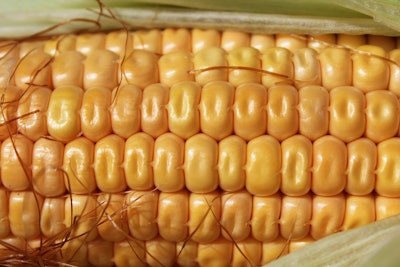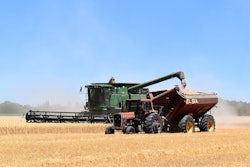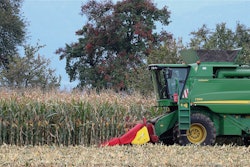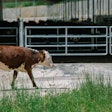
The Corn Refiners Association (CRA) has released its life cycle analysis (LCA), which offers insights into the sustainability achievements and goals of the corn refining industry.
The LCA assesses the environmental impact of various corn refining products throughout their lifecycle, from agricultural production to facility operations. This comprehensive assessment covers environmental aspects such as global warming potential, fossil fuel consumption, energy demand and land use.
Over the next decade, the corn refining industry is poised to make significant strides in reducing its environmental footprint. In the past 10 years, industry members have not only set ambitious sustainability goals but have also surpassed many of them ahead of schedule.
"The LCA report underscores our industry's dedication to sustainability and our integrated, proactive approach to environmental stewardship," said John Bode, President and CEO of the Corn Refiners Association. "The agricultural sector recognizes that there is no one-size-fits-all solution to climate challenges, and instead, approaches sustainability with dynamic and ambitious measures. Corn refiners are setting an example that can serve as a sustainability model for the broader agricultural industry."
Two key factors contribute to environmental footprint
Corn refiners are particularly focused on addressing two key factors contributing to their environmental impact: corn production and energy-related emissions.
Nearly all CRA member companies have programs in place to enhance the sustainability of their corn sourcing operations and engage with producers. Initiatives range from Cargill's commitment to advancing regenerative agriculture practices on 10 million acres of farmland to Ingredion's collaboration with the Sustainable Agriculture Initiative Platform for sustainable production certification.
Moreover, efforts by CRA member companies to transition from high-impact to low-impact energy sources have resulted in significant reductions in greenhouse gas (GHG) emissions throughout the refining process.
Key achievements in the last six years
- In 2017, Ingredion sustainably sourced over 1.69 million metric tons of crops.
- ADM reduced emissions by 16% in 2017, surpassing its original goal three years ahead of schedule.
- In 2020, Cargill announced its support for regenerative agriculture practices on 10 million acres of farmland.
- Tate & Lyle phased out coal from all its corn wet mill operations in 2021.
- Roquette surpassed its goal of sustainably sourcing 20% of raw materials by sustainably sourcing 37% in 2021.
- Primient's Sustainable Agriculture Program supported 1.2 million acres of farmland in 2022.
- Grain Processing Corp. reduced landfill waste by 90% compared to a 2015 benchmark by 2022.
- In 2023, Primient, a company launched in 2022, committed to setting science-based carbon reduction targets.
Future sustainability goals
Looking ahead, corn refiners have set ambitious sustainability goals for the next decade:
- By 2025, Roquette aims to avoid one million tons of CO2 equivalents annually across its global operations.
- By 2030, Cargill plans to reduce GHG emissions in its global supply chain by 30% compared to a 2017 baseline.
- By 2030, Ingredion aims to source 50% of purchased energy from renewable sources and achieve 100% avoidance of waste to landfills.
Through their commitment to innovation and the growth of the bioeconomy, the corn refining industry is playing a vital role in addressing today's climate challenges. Click here for the full LCA report and here for more on CRA's climate change policy principles.
















